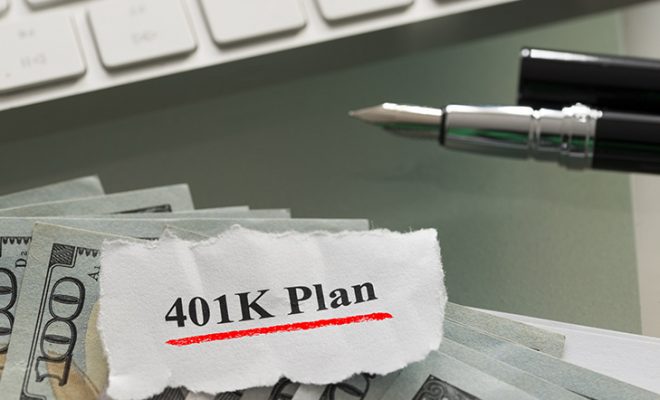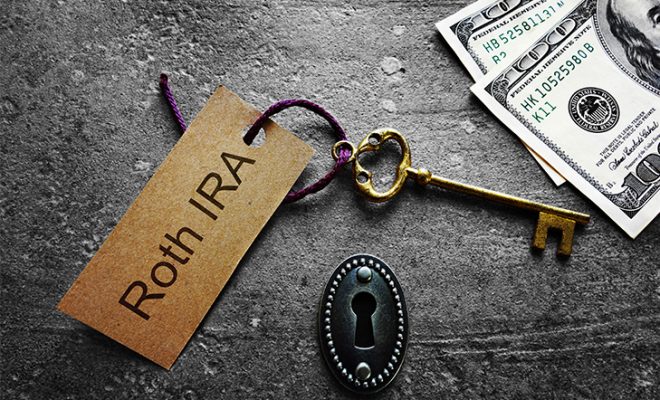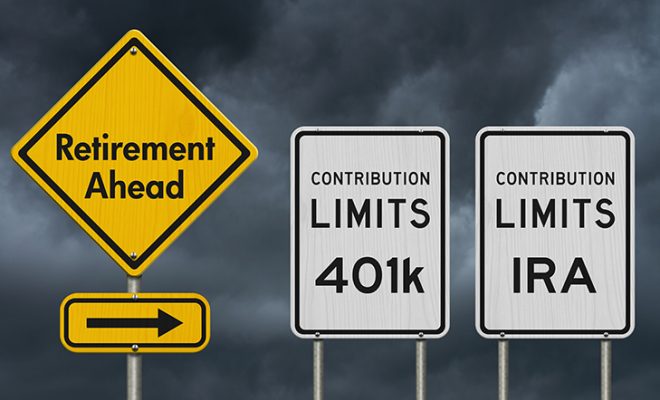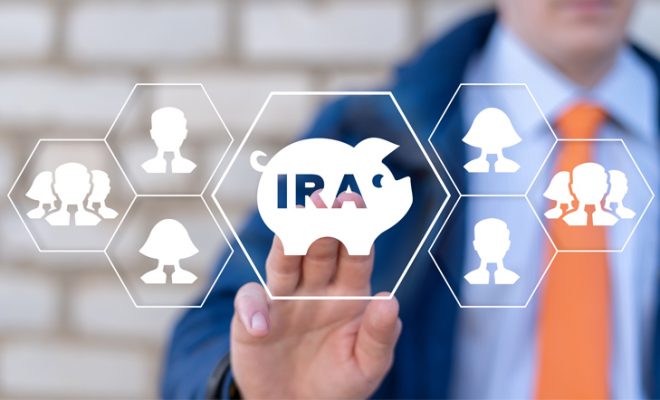401(K): When Is a Good Time To Invest in the Plan?
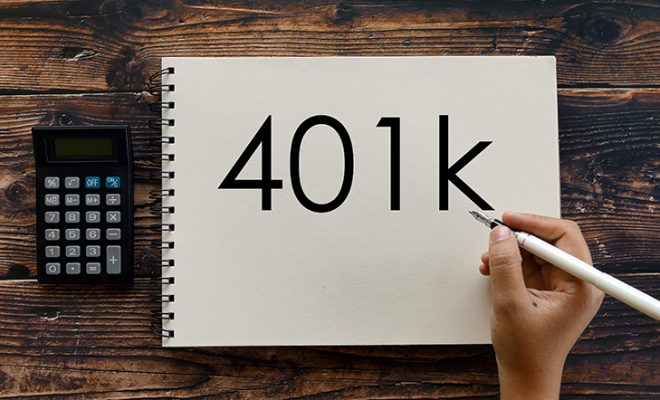
As per the last Bankrate survey, more than 50% of Americans feel they are not saving enough for their retirement years. This explains why most Americans miss the retirement savings mark.
According to a Charles Schwab survey (that questioned over 1,000 401(k) participants), on average, people believe they need at least $1.7 million for a comfortable retirement.
Yet, more than half of these survey participants contribute 10% or less to their 401(k) account. The average annual contribution for a 401(k) account, one of the most popular retirement savings vehicles, is only $8,788. This number is acceptable for someone who starts to save for their retirement early, most likely in their 20s. However, these retirement savings will not suffice for someone who starts to save for retirement later in their life. For instance, if you start saving 10-15% of your annual salary from your 20s, you can aspire to retire comfortably at 65. But if you start planning for your retirement at 45 years or even later, you would have to save at least 35% of your annual salary to achieve the retirement mark of $1.7 million.
When you are young, retirement may appear like a distant objective. However, if you encash these years and make the most of retirement savings plans like a 401(k), you can easily create a significant retirement corpus and be assured of a comfortable retired life. The years slip by when you are near your retirement, and building a retirement nest egg becomes even more difficult. You will have a high salary at a later stage in your career, but your financial responsibilities will also increase, while your retirement savings horizon will shorten. This means you might need to contribute a greater sum towards your 401(k), which can be a financial burden even when you earn more. If you start saving for your retirement early, you have time on your side, allowing you to harness the benefits of compounding while making the saving experience easy and exciting. To understand how much you need to save each year for a comfortable retirement, consulting a financial advisor would be a prudent decision as he/she will be able to guide you on which investment vehicles to invest in to meet your savings goals for your retirement years.
So, if you have a steady income and are wondering when you should start a 401(k) plan, the simple answer is right now! It is never too early to take a step towards your future. Owing to the power of compounding, saving early and consistently for the entire length of your working years can make a dramatic difference to your retirement nest egg.
Here is everything you should know about when to invest in a 401(k) plan:
What is a 401(k) plan?
Before you begin to grasp the difference investing early in a 401(k) plan can make to your retirement, it is important to understand the 401(k) plan in detail. A 401(k) plan is an employer-sponsored, tax-advantaged account where you contribute pre-tax dollars. In most cases, employers also make some or whole of matching contributions to your 401(k) plan. Even though employer matching contributions is optional, nearly half of the employers make these contributions (an average of 3% of the salary), as reported by a Vanguard study. This makes 401(k) plans one of the prime retirement savings plans in America.
The retirement plan allows you to save and invest your money into stocks, bonds, mutual funds, etc., enabling your funds to grow over time. The investments are tax-deferred, which adds to the attractiveness of a 401(k) plan. You can decide the amount you want to contribute to your 401(k) plan, and the same sum is automatically deducted from your salary every month and invested as per your preference.
What is the contribution limit for a 401(k)?
Each year the IRS (Internal Revenue Service) specifies contribution limits for 401(k) and other similar retirement plans. For 2021, the IRS allows you to contribute not more than $19,500 in your 401(k) account. If you are 50 years or older, you can make a catch-up contribution of up to $6,500 in 2021. If you are in the high-earning category, you can use only the first $285,000 of your earnings when evaluating the maximum contribution to your 401(k) plan.
If your employer makes a matching contribution to your 401(k) plan, the upper contribution limit for 2021 is $58,000 or 100% of employee compensation, whichever is lower. For those 50 years or above, the limit is $64,500 for 2021.
When to start investing in your 401(k)
As per financial experts, you should start investing in a 401(k) account as soon as you get a full-time job, even if your contributions are modest. Ideally, you should contribute at least 10% of your income towards your 401(k) plan every month. If you save consistently, your retirement funds will benefit from compound interest and have enough time to recover from market dips. Earning compound interest (returns on investments + returns on returns) will allow your funds to grow faster than simple interest.
As per a CNBC report, if you want to save $1.7 million and retire at the age of 65, you have to save at least $486 per month beginning from the age of 25. This analysis assumes an 8% rate of return. Alternatively, if you start saving at 30, you will need to contribute at least $741 per month to achieve your retirement milestone of $1.7 million with an 8% rate of return. This indicates how powerful investing early can be for your retirement financial safety. Starting to invest early can help you save more effectively.
Even if you cannot contribute hundreds of dollars in your 401(k) account at the beginning of your job, you can begin with a sum you can manage, even if it is only $10 or $20 per month. The objective is to build your contributions over time and build a healthy retirement corpus. Moreover, the value of a dollar you save today is worth more than a dollar you save in the future because of the effect of compounding. If you do not begin your 401(k) contributions early, you might have to increase your financial contributions later to catch up. Further, your savings will also be more prone to market volatility as you have fewer years to absorb short-term losses.
What are the benefits of investing early in a 401(k) plan?
Here are some benefits of investing in a 401(k) plan from an early age:
Benefit from the power of compounding:
Compound interest is one of the prime reasons why you should start your retirement planning early. For the unversed, compound interest is the process that allows your money to grow exponentially because of interest building upon itself over a period. For instance, you contribute $1,000 in bonds in your 401(k) account. The long-term bonds assure 3% interest per year. This implies that after the first year, your savings will be worth $1,030 ($1,000 + 3%*$1,000). In the second year, your 401(k) balance will be worth $30.90 more. These small additions will add up to a large amount over time. If you increase your contributions in the following years, you can easily take advantage of compounding even more effectively. As you near your retirement, your savings will grow more quickly than they did before in one year. For instance, in the above example, you would have $3,167 by the 39th year of your 401 (k) plan. In the 40th year, your savings will grow to be $3,262 (approximately). This implies that in one year, your savings grow by $95 in comparison to $30 or $30.90 in the initial two years. The triple difference in the growth of your 401(k) balance is due to the power of compounding. Your 401(k) has a higher chance of growth if you choose to invest in equity and related growth securities instead of debt. Ideally, if you are more than ten years away from your retirement, investing in stocks and other similar high-growth securities is wiser. But as you near your retirement age, you can rebalance your 401(k) holdings to include more debt and safe financial securities instead of equity.
Take advantage of employer matching contributions:
Investing early in a 401(k) allows you to benefit from the employer matching contributions. Most employers offer an incentive match for your 401(k) contributions, encouraging you to invest in your retirement fund. This employer contribution to your 401(k) is essentially free money. It is wiser to start investing in your 401(k) plan so that you take advantage of employer matching contributions for a longer duration. Sometimes, employers match 50% of your 401(k) contributions, while others might also go on to match 100% of the 401(k) contributions. Employers that want to retain top-quality employees would most likely offer an equal 401(k) contribution. However, some companies might delay the start for contributing their part into your 401(k) plan. Alternatively, some companies might also ask you to wait for a specific period before you begin contributing to a 401(k) plan. According to a study conducted by the Plan Sponsor Council of America (PSCA), over 41% of employers surveyed asked their employees to wait for six months or more before they could participate in the 401(k) plan. 27% of companies had a one-year-long waiting period, which is the longest period permitted by the law. If your employer has a waiting period for 401(k) plans, it could impact your retirement fund accumulation over time. However, to manage the lost opportunity, you can contribute to an IRA (Individual Retirement Account) in the meantime. And, when you become eligible for a 401(k), you can double your contributions to make up for the lost time. Alternatively, you could negotiate with your employer to give you non-qualified plans to compensate for the lost opportunity.
Maximize 401(k) returns:
If you start investing early in a 401(k) plan, you have more time until you retire. In this case, you can allocate your funds in growth-oriented stocks and adopt a more aggressive investing strategy. This implies that a major portion of your portfolio will comprise shares and fewer bonds and cash deposits (CDs). Investing in stocks increases your chances of generating higher returns than investing in other securities like debt, cash deposits, etc. As per experts, if you are a decade or more away from retirement, being conservative in your 401(k) investments could be a mistake. When invested early on, a diversified portfolio with mostly stock investments can generate significantly higher returns than a typical bond portfolio over time. The S&P 500 Index has been gaining 10% annually on an average for decades. And with the life expectancy figures showing a positive trend, you can expect to live a longer retirement life. Hence, you would need to ensure your investments provide a high rate of return. Many 401(k) plans allow you to invest in target-date funds that change your investing approach from aggressive to conservative as you near your retirement age.
How to start saving in a 401(k) for your retirement?
The best medium to save for retirement is to set up auto-contributions. Set up the auto-contributions as soon as you can and whatever you can afford. You can assess your budget and estimate if you can cut your expenses and redirect the money towards your retirement. If you get immediate access to a 401(k) account as soon as you begin working, you can start your investments instantly. If you get an employer match, it is good to ensure that you at least save that much in your 401(k). As per a Fidelity report, approximately 20% of the 401(k) savers do not contribute an equal sum to their employer. Not matching your employer contribution is like leaving your salary lying on the table. A 401(k) match is a part of your total compensation.
For instance, assuming you are 22 years and earn $40,000 annually and contribute 10% of this salary to your 401(k). Your employer makes a 3% matching contribution, and the average annual rate of return is 6%. In this case, you can save more than $ 1 million by the time you are 65 years old. However, if you delay until 30 years to start your 401(k) plan contributions, you would have only $617,000 as your balance. Starting early and taking advantage of the matching employer contributions for a longer term can give you potentially $300,000 (30%) more in your retirement nest egg. This can be helpful for you if you have plans for early retirement or wish to live a luxurious retired life.
Don’t be burdened by debt
If you delay your 401(k) contributions because of pending financial liabilities and debt, such as student loans, you are likely making a financial mistake. Nearly 44 million Americans are paying off their student loans. So, if you have a pending financial liability, you are not alone. Hence, it is not wise to wait to start your 401(k) plan contributions until you pay off all your debts. Instead, you could work around your budget carefully and cut down discretionary expenses, like online subscriptions, dining costs, etc., and use that money to pay off your loans. Paying off loans and saving for retirement can go hand-in-hand if you plan your budget wisely.
Investing when markets are low
If you are already investing in a 401(k) plan, you can be more mindful of lucrative opportunities to increase your retirement fund balance. One such event is when the markets are low. Even though it may seem counterintuitive to invest in a 401(k) plan when the markets are volatile, this is what financial experts recommend. This is a time of good investment because buying low and selling high is a proven investment strategy. When the markets plummet, the stock prices fall, they become cheaper. This is the time you can use your funds to buy more stocks, which will eventually rise in value and give you higher returns over time. Starting your 401(k) during a low market (bear market) time would allow you to begin contributing when stock prices are low. You pay low prices, lower fees, and potentially offer more dramatic growth over time when the market trends upwards.
To conclude
As stated earlier, the right answer to when you should start a 401(k) plan is now. There is no standard contribution amount, and your 401(k) amount depends on your financial situation and how much you can afford to contribute towards it. You can begin your 401(k) plan with a small sum and eventually increase it over time to take advantage of all early investment benefits. However, your asset allocations have a significant impact on your fund balance over time. The sooner you start investing, the more aggressive your investment approach can be, allowing you to maximize your returns. If you want guidance on when to start a 401(k) plan and how to allocate your funds to maximize your fund value, consider consulting a professional financial advisor. Beginning your 401(k) early, coupled with professional financial guidance, can have a significant impact on your retirement financial security.
To further understand the most suitable investments for your retirement portfolio, visit Dash Investments or email me directly at dash@dashinvestments.com.
About Dash Investments
Dash Investments is privately owned by Jonathan Dash and is an independent investment advisory firm, managing private client accounts for individuals and families across America. As a Registered Investment Advisor (RIA) firm with the SEC, they are fiduciaries who put clients’ interests ahead of everything else.
Dash Investments offers a full range of investment advisory and financial services, which are tailored to each client’s unique needs providing institutional-caliber money management services that are based upon a solid, proven research approach. In addition, each client receives comprehensive financial planning to ensure they are moving toward their financial goals.
CEO & Chief Investment Officer Jonathan Dash has been profiled by The Wall Street Journal, Barron’s, and CNBC as a leader in the investment industry with a track record of creating value for his firm’s clients.


